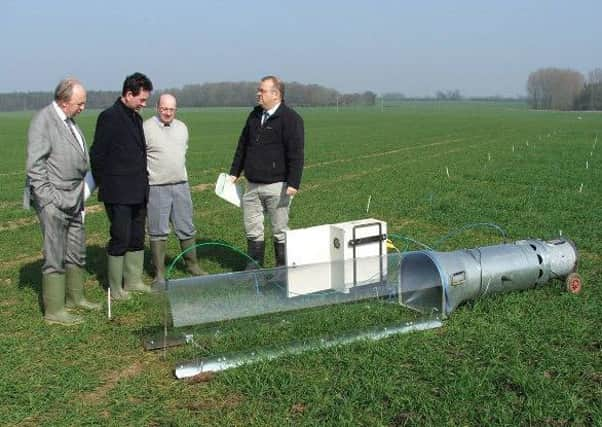Field trial results can help reduce reliance on fertilisers


Field experiments confirm that food-based digestate - a product of anaerobic digestion - is a valuable source of nitrogen; the most important nutrient influencing crop yields, the charity said.
The ground-breaking research also produced no negative impact on crop quality or safety.
Advertisement
Hide AdAdvertisement
Hide AdData from the study will help farmers to predict how much nitrogen the digestate will supply their crops and allow them to confidently reduce the amount of bagged fertiliser without affecting yields, WRAP said.


The trials involved the use of compost too - made from recycled green garden waste and food waste - and it was found to build levels of soil organic matter more quickly than other organic materials, such as farmyard manure.
The research also indicates that digestate and compost provide crops with a measured boost of phosphorus, potassium and sulphur to maintain soil fertility.
Dr Richard Swannell, director at WRAP, said: “These new findings show the benefits that using the products correctly can bring, and for the first time farmers and growers have the evidence to make informed decisions about their fertiliser use.
Advertisement
Hide AdAdvertisement
Hide Ad“This is a significant step forward for both the anaerobic digestion and composting industries and for farmers and growers.”


Defra’s Resources Minister, Rory Stewart, said: “Sustainable farming is increasingly important for our environment and food supply. I welcome this report which will allow farmers to make better decisions about renewable fertilisers, helping to grow crops more smartly and efficiently.”
The research programme found that the timing and method of digestate application is critical to the benefits gained from their use.
Digestate used in the spring on actively growing crops, or other times when there is a crop nitrogen requirement, can significantly increase its nitrogen value.
With compost use, the research confirmed that it should be seen as a means to build up long term soil nitrogen rather than as a short term replacement.